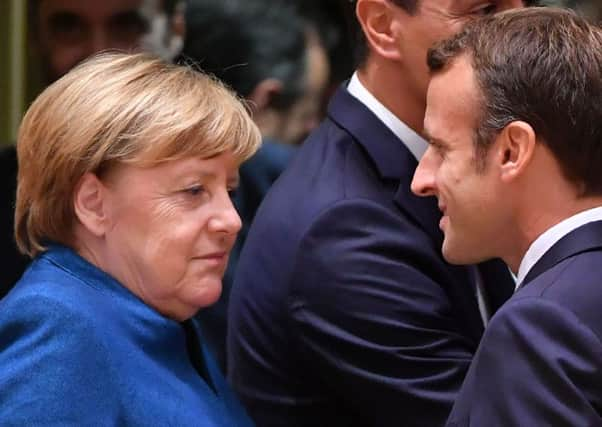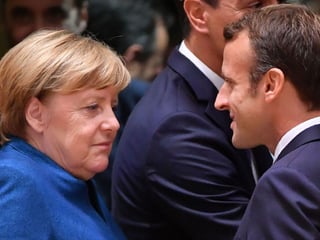Angela Merkel is not so pro-EU as you might think '“ Eva Oer


Chancellor Angela Merkel’s decision to announce the end of her career has had European leaders like the French President Emmanuel Macron singing the praises of her work in the European Union. She “never forgot what the values of Europe are and she leads her country with great courage”, he said after she revealed she would step down as chair of the ruling conservative CDU party and not run for another term as Chancellor after 2021.
For 13 years, Merkel helped to shape the European Union. She always positioned herself as a decidedly pro-European leader in these turbulent times of right-wing populism and euroscepticism. So it’s only logical for Macron to say that her departure is “not reassuring” – even if she will still serve as Chancellor until 2021.
Advertisement
Hide AdAdvertisement
Hide AdBut has she really been such a tremendous force for European progress? It seems that Germany’s traditional role as a stable anchor for the EU has changed to something more like a roadblock in the past year. After the German general elections in September 2017, the other EU members had to wait months until a new government had formed. France’s Macron had to put his suggested EU reforms – which he had hoped Germany would support – on hold. When Germany finally emerged from months of political deadlock with a coalition deal between Merkel’s CDU/CSU and the centre-left Social Democrats (SPD), peace only lasted for a short while. The summer was spent in a bitter dispute over migration policies between the Chancellor and her Bavarian interior minister, threatening the fragile coalition. This trouble spiralled back to the EU with European Commission President Jean-Claude Juncker even calling for an emergency mini-summit on migration in June, not only to end EU member states’ divisions on the topic, but also to try to save Germany’s government.
But even before that, Germany’s leadership didn’t entirely live up to Macron’s glowing words of praise: Merkel sometimes seemed to have forgotten European values. As much as I’d like to say she was an antidote to the prevalent national egotism in Europe, that hasn’t always held true in her handling of European politics. Merkel was perhaps just more skillful in concealing Germany’s motives than others.
She could have shown solidarity with Greece during its debt crisis, but instead Germany was at the forefront of the push for draconian austerity measures. This might have impressed voters who wanted to be assured EU solidarity didn’t come at the German taxpayers’ expense – but even in Germany there were critical voices about the way Berlin exercised its power within the EU to get its way. The way the crisis was managed has driven many Greeks into poverty and unemployment and it created a frustrated young generation who distrust the EU.
Of course, Merkel will be dearly missed now that the EU has to deal with the likes of the Italian interior minister Matteo Salvini, a populist from the far-right Lega party, who rejoices in seeing the EU in chaos. But Merkel and some of her ministers too often defended decisions with the German word “alternativlos“ – meaning “without alternative“, cutting off all discussion. As we see know, there is an alternative to liberal democracies, and maybe Germany didn’t always do its best to show EU citizens in recession-ridden countries that it also had their interests in mind.
Eva Oer is an editor for the German national daily Taz die Tageszeitung based in Berlin. She is spending two months at The Scotsman as part of the George Weidenfeld Bursary newsroom exchange programme
